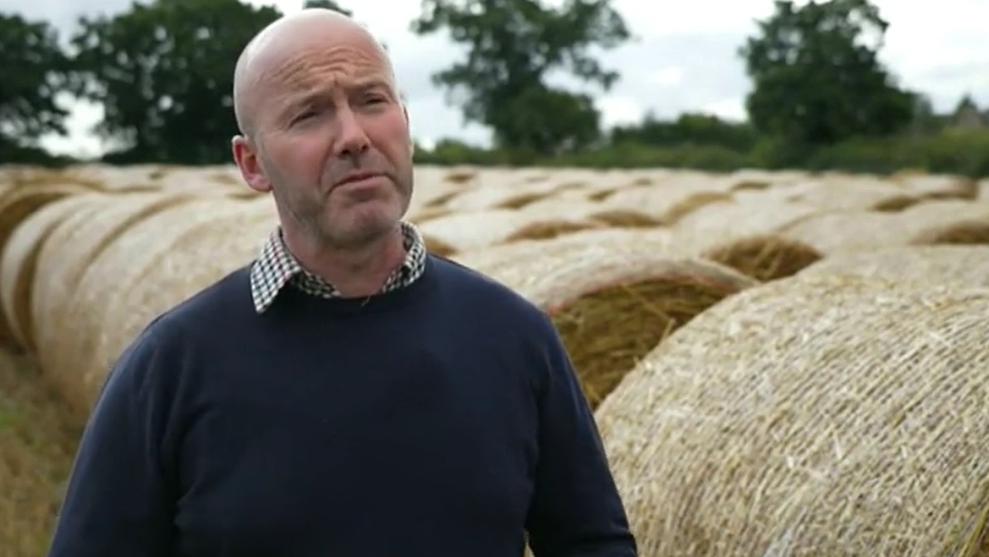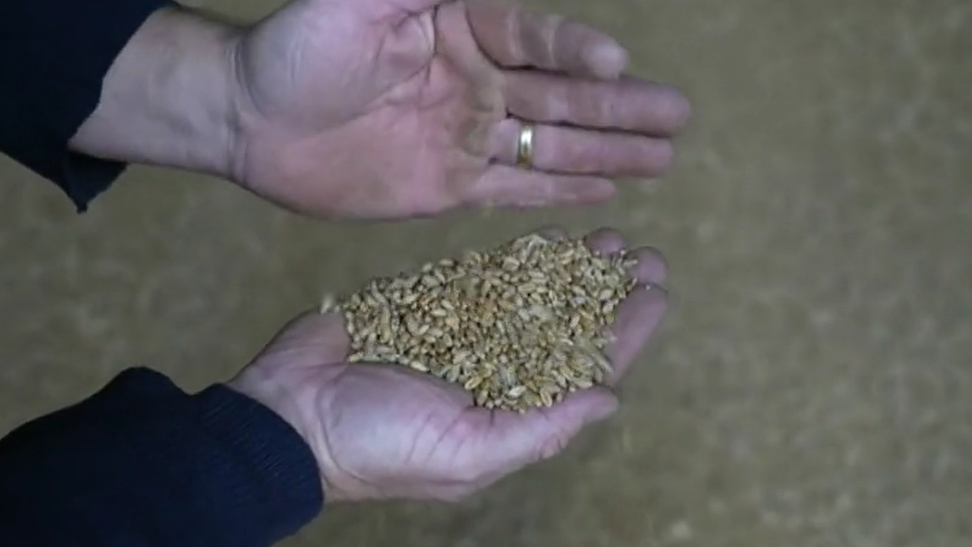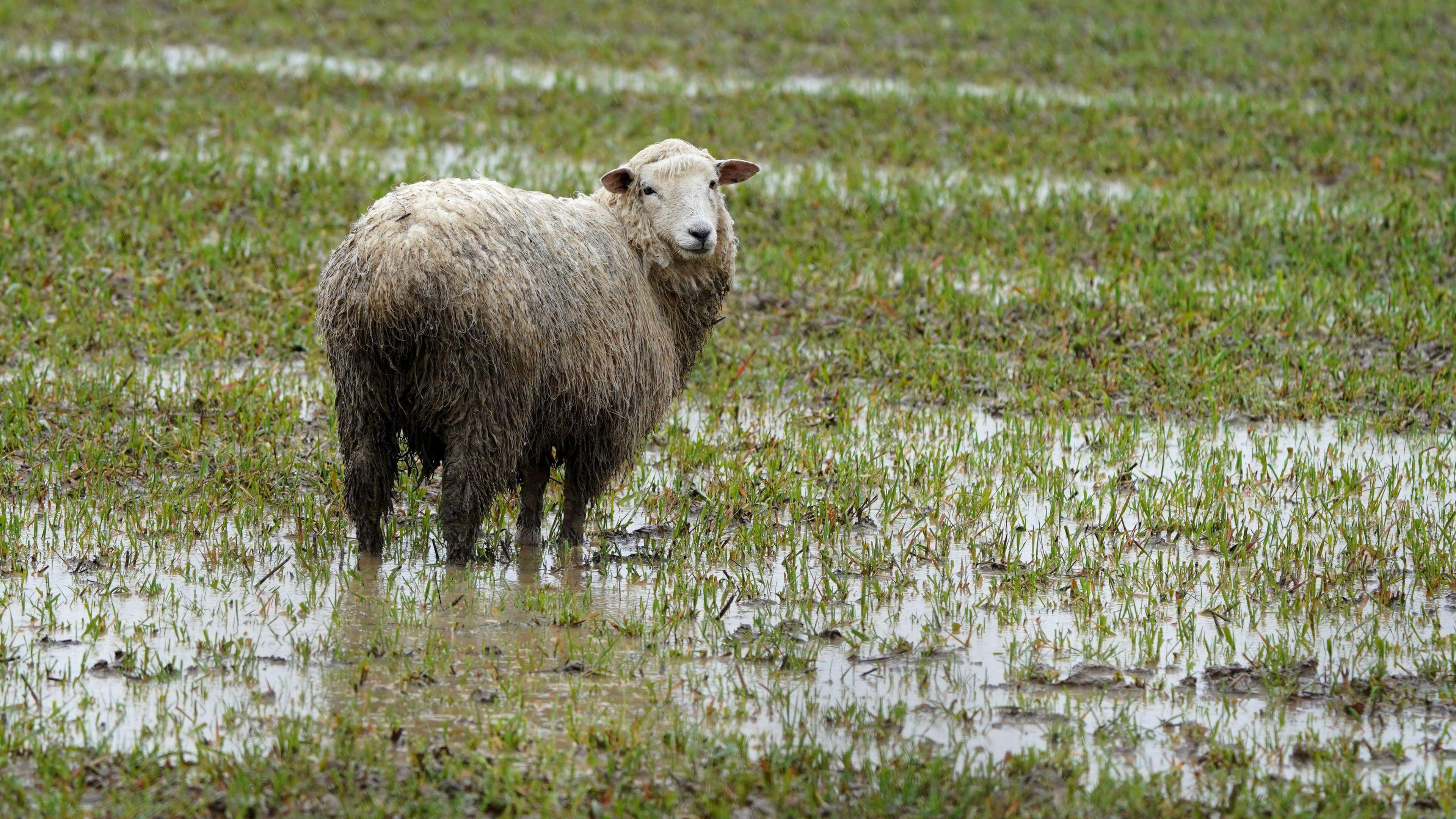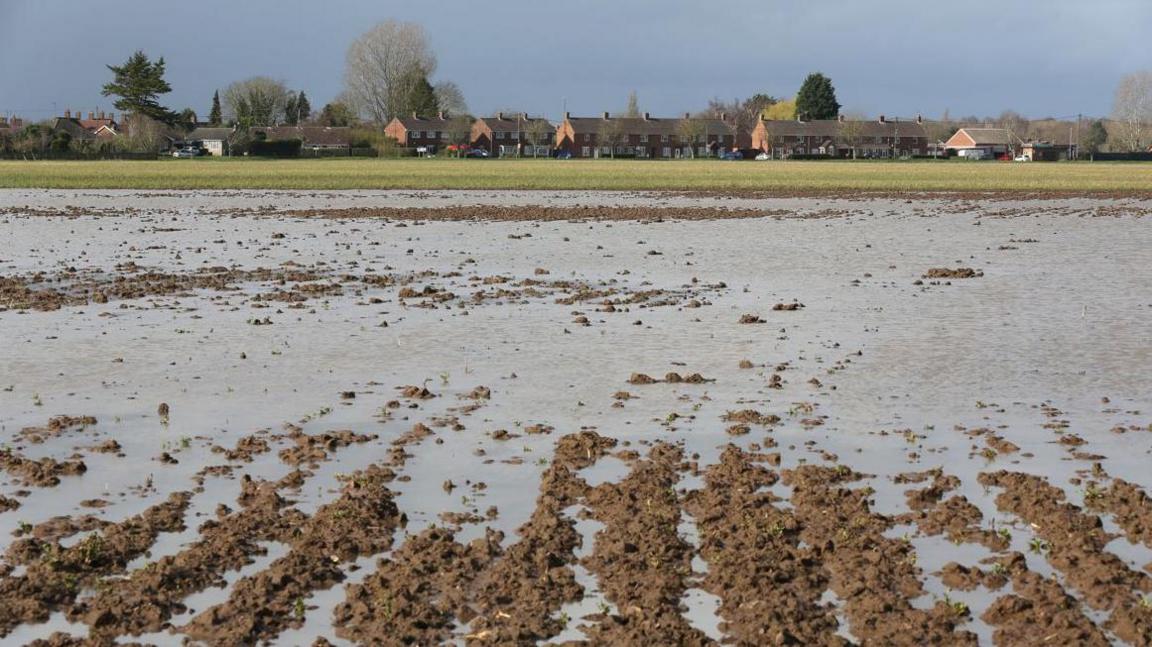Farmer's financial fears after wet harvest

The wet weather has been an "absolute nightmare" for farmers, said Charles Goadby
- Published
The wet weather through the year has been an "absolute nightmare for pretty much every single crop there is", a farmer says.
Thousands of tonnes of wheat grown by farmers across the Midlands for flour has been rejected by millers after it was attacked by ergot, a fungus that affects the grain.
Charles Goadby farms in Nuneaton, Warwickshire and said although any rejected crop could still be sold as animal feed, it does not sell for as much.
"The big worry for a lot of farmers now is that we haven't had the produce we wanted, we haven't had the price we wanted to sell it for, so cash flow is short," he said.
Some farmers were questioning how much they could afford to grow next year and how well they could look after it, said Mr Goadby.

It only took a handful of grains to be affected by the fungus ergot for a load to be rejected, Mr Goadby said
His wheat crop was down by about a fifth, he estimated, partly because it had not grown well in some fields or had been washed out due to the rain.
This was compounded by the discovery of fungus in the harvested crop as a result of the wet season, meaning the market for animal feed was "flooded" reducing its value, Mr Goadby said.
At the same time, "we've got a shortage of milling wheat but we're not seeing price rises to the growers because we are just importing it more", he claimed.
Conditions for planting were currently good, he added but finding the money to do it was going to be the issue for some farmers.
"We haven't had the yields, we haven't had the crops to sell from last year and for a lot of people, it's a struggle to be able to plant for this year coming," Mr Goadby added.
Get in touch
Tell us which stories we should cover in Warwickshire
Follow BBC Coventry & Warwickshire on BBC Sounds, Facebook, external, X, external and Instagram, external.
Related topics
- Attribution
- Published24 April 2024

- Published8 August 2024

- Published26 July 2024
